Explorations through Language, Memory & Time.
Through stories, structures, camerawork, music and most importantly through his many collaborations that push his creativity to the limit, Denis Villeneuve’s unassuming, underrated brilliance is a breath of fresh air.
“I’ve always been in love with language. My favourite book is a dictionary. I have always loved words.”
– Denis Villeneuve
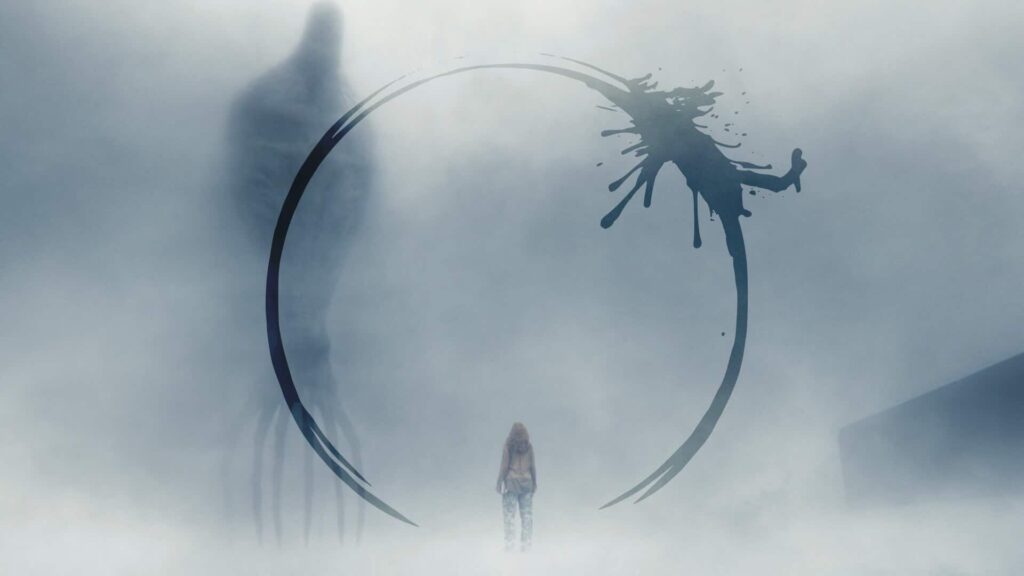
Denis Villeneuve is not a name you may have heard of, nor would many of you have seen his films but you most certainly may have heard about them. And if not, well I’m here to change that!
To walk into a Villeneuve film is to traverse a maze and walk out slightly dazed, but brimming with questions, thoughts and ideas which continue to fester and live inside you for days on end – an emotional punch that knocks the wind out of your sails while your brain tries to make sense of the world.
For Villeneuve, films are enigmatic spectacles that need to be seen as a collective. Where the audience grapples with ambiguity and uncertainty of his storylines through rich character arcs, palpably unnerving cinematography and uncomfortable realism.
All these and more are superbly explained through StudioBinder’s exploration of ‘Denis Villeneuve and His Cinema of Ambiguity’
To walk into a Villeneuve film is to traverse a maze and walk out slightly dazed.
The hallmark of any good filmmaker lies in their ability to completely immerse the viewer. Where they are taken on a journey, through the medium of film, and somehow come out slightly different from who they went in as.
Having said that, Denis Villeneuve and Christopher Nolan are true masters of doing just that. One may revel in the spotlight more than the other, but by examining their body of work, it’s safe to say that they can arguably be considered as two of the greatest filmmakers of our times. As opposed to the Nolan-verse – riding high on pomp, grandeur and the visual spectacle – Villeneuve’s films resonate more on an emotional level and focus on people, communication & relationships – ‘Dune’ + ‘Blade Runner 2049’ are recent exceptions.
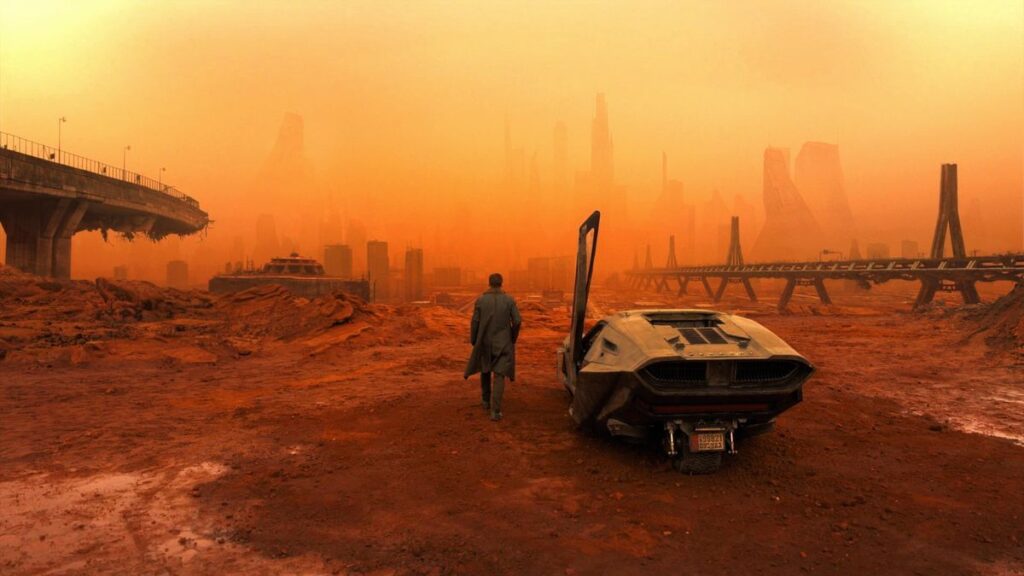
The comparison with Nolan though, deals more with how the two approach and use concepts of time.
On one hand, Nolan’s fascination and fixation – in some cases – with time, is explicit in nature and is instantly recognisable either through the storylines themselves or through the sequence of events. The closest a Nolan film comes to Villeneuve’s – in cinematic style and narrative structure – may perhaps be ‘The Prestige’.
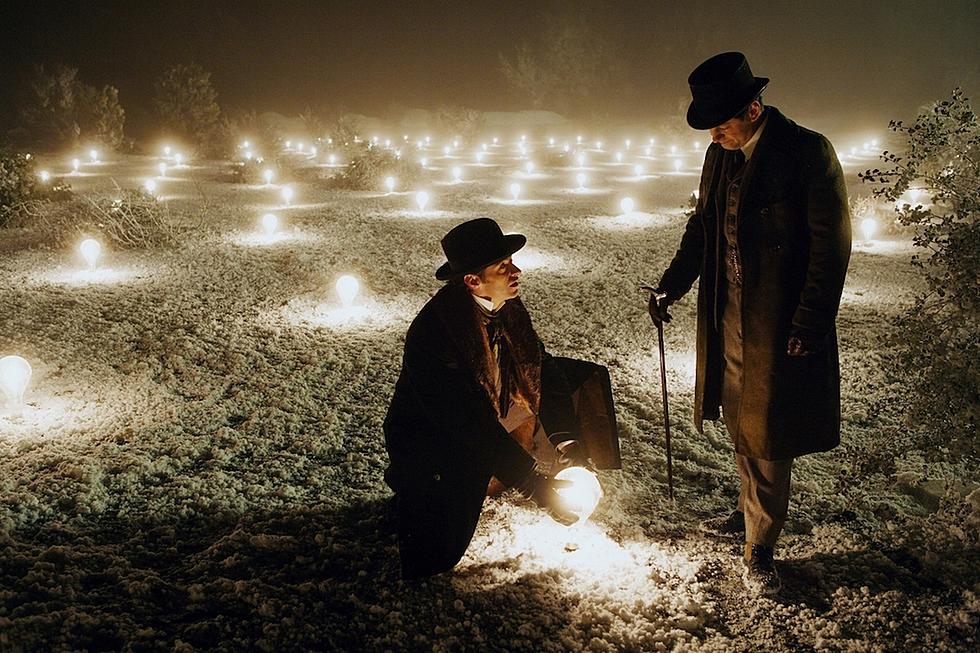
However, Villeneuve’s films are extremely subtle in that regard and try to extrapolate a sense of time through memory. Villeneuve’s fascination with language and memory – where the two are inextricably intertwined – can be traced back to some of his early work in ‘Maelström’ & ‘Polytechnique’ and come full circle with the hauntingly beautiful ‘Arrival’.
I’ve had the good fortune of watching 8 out of 9 of his feature films (‘August 32nd on Earth‘ – his first film – which I am earnestly trying to get my hands on) and a few of his short films, which I shall link at different stages throughout this piece.
My fascination with and affinity for Villeneuve’s films was purely accidental. While exploring David Fincher’s filmography, which revived my interest in Jake Gyllenhaal as an actor – from ‘October Sky’ to ‘Donnie Darko’ and from ‘Brokeback Mountain’ to ‘Zodiac’ – I finally stumbled upon two curious titles that I knew nothing about, and which seemed to have appeared out of thin air – released a couple of months apart and by the same director!
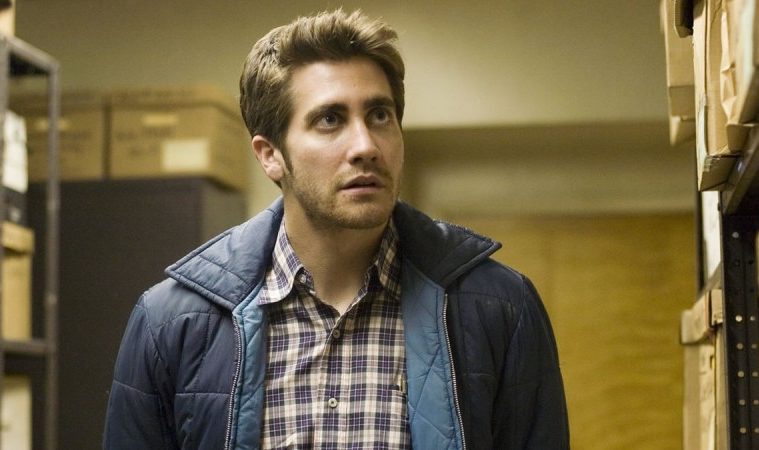
‘Enemy’ and ‘Prisoners’ were shot simultaneously by Villeneuve with Jake Gyllenhaal being the common link between the two. In Kaitlyn Tiffany’s article for The Verge, she writes, “For Villeneuve, linear narratives are a distraction.”
‘Enemy’ is his most abstract of abstractions and probably his most confounding and enigmatic film till date. An adaptation of ‘The Double’ by the Portuguese writer José de Sousa Saramago, ‘Enemy’ is a mind bending and unnerving psychological thriller that highlighted Villeneuve’s versatility and announced his arrival as a heavyweight filmmaker in the industry.
As much as his films speak of language, memory and time, they also seek to further accentuate your awareness and perception by disorienting the viewer and by highlighting the absence of the same.
What exactly would you do if you met your doppelgänger? The film’s tonality tries to create an atmosphere that is striking – as yellows and greens pop out – exuding a sense of discomfort and anxiety.
“Adam, a college professor, spots an actor in a movie who looks exactly like him. Adam tracks down his doppelgänger and starts living his life secretly, which gives birth to a complex situation.”
With ‘Prisoners’, the structure reverts back to that of something more mainstream but retains the vigour, allure and inimitable intensity that one has come to associate with the director’s films. A tale that explores the human psyche, moral conflicts and the metamorphosis of the self. All through the lens of the master cinematographer Roger Deakins, who adds a sense of realism that makes the film a whole lot more terrifying.
“When the police take time to find Keller Dover’s daughter and her friend, he decides to go on a search himself. His desperation leads him closer to finding the truth and also jeopardises his own life.”
It is extremely interesting to note that Villeneuve consciously thinks about his films and filmmaking processes as interconnected systems that feed off of one another.
While filming ‘Enemy’ and ‘Prisoners’ simultaneously, he talks about the need for a “double” to write and develop the features, while with ‘Prisoners’ the enigmatic nature of his films seeps quite literally into the storyline.
Denis Villeneuve is the complete filmmaker. A masterful storyteller who is both passionate and smart with a firm grip over the larger visions and concepts of his projects. With a meticulous eye for detail – preparation fuels the best kind of improvisation, according to the filmmaker – with ideas and work flows clearly marked out months, and in some cases years in advance – completely in sync with either the process or the nuance of characterisation and storytelling.
It is extremely interesting to note that Villeneuve consciously thinks about his films and filmmaking processes as interconnected systems that feed off of one another.
All his features explore trauma, self-conflict, existential angst and violence which can be extremely graphic and uncomfortable to watch but unlike those who indulge in depicting the same for the sake of it, Villeneuve’s stories always have their reasons.
Having said that, rays of hope do exist which are mostly brought to light – in the majority of his work – through strong female protagonists in ‘Maelström’, ‘Polytechnique’, ‘Incendies’, ‘Sicario’ and ‘Arrival’.
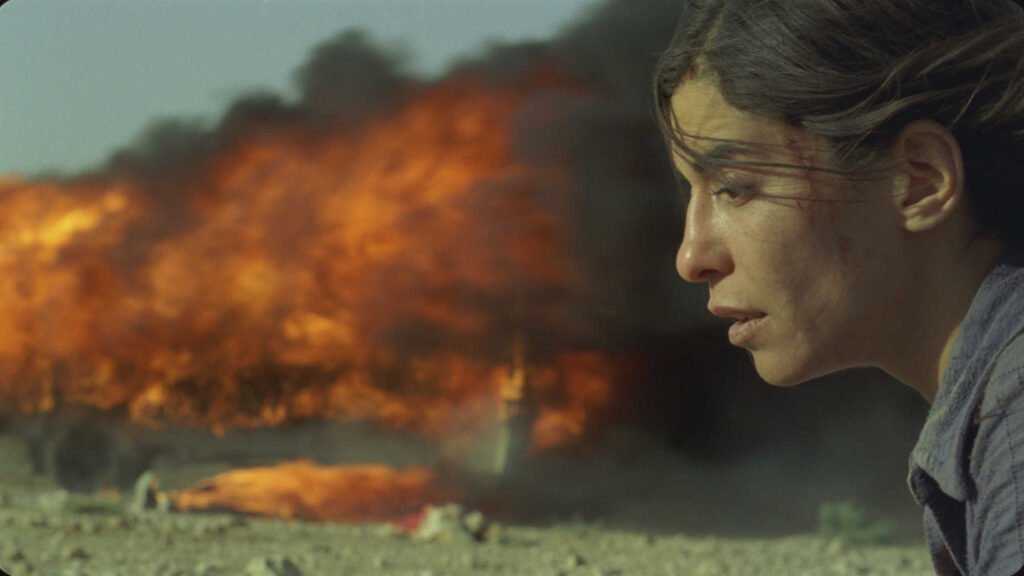
‘Maelström’ tries to explore a state of mind and the human condition through symbolism, some smart colour grading, nifty camerawork and well placed exposures – that will leave the viewer unsettled and completely in tune with what the protagonist feels as she spirals out of control.
“Bibiane meets Evian, the son of a man she accidentally killed so that she can come to terms with her life. They fall in love, but what will happen when Evian learns the truth? Will he still love her?”
With ‘Polytechnique’, the filmmaker’s only black and white feature, Villeneuve paints a strong yet bleak and tragic story that recounts one of the most horrific on campus shooting incidents in Canada. But it isn’t only about that. It goes beyond and chronicles the lives of the survivors who struggle to cope with the trauma inflicted upon them and their peers.
‘Incendies’, is my absolute favourite film by the auteur – a riveting familial drama that draws you in through its war-torn landscape as well as the pathbreaking performances by the leads – a mixture of pathos, grit and conflict that blend seamlessly to create a stunning feature.
Language and memory play a pivotal role in all his films and even more so in this as the viewer is sent out on a quest – with the numerous protagonists – to uncover the truth about their mother’s past all the while oscillating between various timelines ultimately culminating in a jaw dropping sequence of events. A Villeneuve film is incomplete if it doesn’t have a twist or two that complete destroy your mind – and the slow-burn that is Incendies, actually is Earth-shatteringly good.
Moving on to the gritty cartel feature. Emily Blunt stars in the hard-hitting, morally complex thriller ’Sicario’, which asserts itself as a signature Villeneuve film that packs in action, dread and harsh realities of the world we live in. The film’s pace and structure are heavily influenced and elevated by Roger Deakins’ magic with the camera as well as Jóhann Jóhannsson’s tense and ominous score.
“During a dangerous mission to stop a drug cartel operating between the US and Mexico, Kate Macer, an FBI agent, is exposed to some harsh realities.”
Note: There’s a sequel to the film Sicario: Day of The Soldado that has been directed by Stefano Sollima who has tried to emulate much of the cinematographic style as well as pay homage to Jóhann Jóhannsson – the composer – with his protégé Hildur Guðnadóttir taking the score forward.
‘Arrival’, based on a speculative fiction short ‘Story of Your Life’ by Ted Chiang, is an intricate web of ideas – alien and yet very much focused upon our own and how humans as a species communicate.
‘Arrival’, as much as it is about communication and language – or how Denis likes to put it, more about the language of intuition – it is also about the fear of ‘the other’ and how we as humans continue to let each other down by not communicating to solve our problems. Villeneuve’s films do draw from a foreboding sense of existential dread that is far more pervasive in our world today than we let ourselves to believe. We are in a constant state of fear and anxiety fuelled by the geopolitical scenario – a ticking time bomb just waiting to go off.
Riddled with metaphors, concepts of time, existence, life, grief, love, and one cracker of an ending, the sci-fi drama has to be one of the most thought-provoking films I’ve ever seen and will be watched over and over again for decades to come!
Note: The Blu-Ray Box Set contains some additional content that has eluded me so far.
If ‘Arrival’ hadn’t done it the year before (in 2016) – which is absolutely foolish and absurd, since the film is a modern sci-fi masterpiece – then ‘Blade Runner 2049’ definitely confirmed and cemented Villeneuve’s place as the next reliable go-to director after Nolan. ‘2049’ is a spectacle that is both mesmerising and hallucinatory – a 160-minute dream that you really don’t want to wake up from.
The much-awaited sequel did indeed amaze, astonish and surprise quite a few who thought the enormous weight of the first film would lead to its ultimate collapse. Boy, were they wrong!
“K, an officer with the Los Angeles Police Department, unearths a secret that could create chaos. He goes in search of a former blade runner who has been missing for over three decades.”
I’ve only recently discovered Denis’ short films – there are 7 in all – with ‘Next Floor’ instantly reminding me of Dante’s Inferno. A commentary on society and capitalism, the short is not for the faint of heart, with gluttony bordering on the grotesque being highlighted as an allegory for the same.
Note: Netflix’s ‘The Platform’, has an eerily similar aesthetic and overarching idea that has been tapped into.
Humility and modesty are virtues the Canadian filmmaker lives by. No filmmaker can do it all on their own, and Villeneuve graciously accepts that by pointing out that he strives to surround himself with the right people. Some of whom have collaborated with him on multiple occasions and some who continue to do so – in Eric Heisserer, Roger Deakins, Jóhann Jóhannsson, Greig Fraser and Jake Gyllenhaal. Each of whom deserve to have individual pieces attributed to them and their work in the near future!
Here’s a look at Jóhann Gunnar Jóhannsson’s final contribution – Last & First Men.
Talking about Denis Villeneuve without discussing ‘Dune’ would be a travesty of the first order!
Several attempts at adapting the timeless classic have either gone up in flames – watch Jodorowsky’s Dune which to be honest is absolutely fantastic – or have been sent to the chopping board. David Lynch’s version wasn’t all that bad. What made it absolutely awful and unbearable was the editing. For someone who has read the book it was a terrible experience.
Humility and modesty are virtues the Canadian filmmaker lives by.
‘Dune’ has to be one of the most immersive, rich and politically charged sci-fi books I have read, and it makes absolute sense to read Frank Herbert’s sprawling masterpiece (spread over 6 books) that has inspired a bucket load of films – Star Wars, Alien, Contact and Blade Runner.
This is one film you don’t want to miss when it releases later this year.
For Villeneuve, ‘Dune’ could be his magnum opus, or it could very easily crash and burn due to recent changes to schedules as well as a same day HBO Max release due to the pandemic – resulting in Villeneuve hitting out at WB – as well as a mega merger with Discovery – which could derail plans of a two-part epic – “Dune Hasn’t Even Come Out Yet, And I’m Already Worried about the Sequel” by Mike Reyes.
UPDATE: Denis Villeneuve is optimistic that Dune Part II will happen!
However, like his films, I would like to believe in the power of non-linear narratives.
Through stories, structures, camerawork, music and most importantly through his many collaborations that push his creativity to the limit, Denis Villeneuve’s unassuming underrated brilliance is a breath of fresh air. For a filmmaker who effortlessly jumps from one genre to the other, Denis is charting a very intriguing path. One that is more interested in ambiguity and the many shades of grey – a journey through time with language and memory as the driving force.
Look out for ‘The Son’ where Villeneuve and Gyllenhaal team up for HBO’s new limited series.
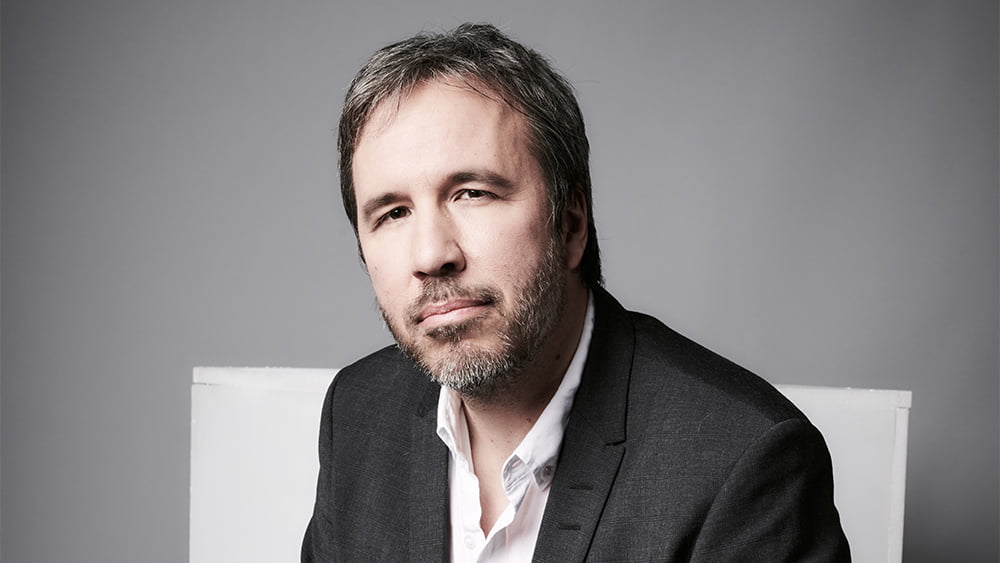
Additional Resources
Denis Villeneuve Interview | Shanghai International Film Festival
On Dune and his filmmaking style:
Leave a Reply